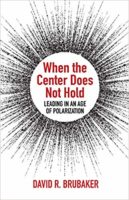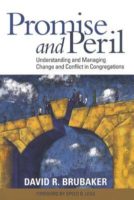
Six months ago, I announced my intention to retire at the end of this academic year. I’ve worked at the same university for 20 years—as a professor, a department chair, and a dean. But it’s time to step aside and let others move into these roles. How do we know when it’s time to let go and retire? For me, there were three key indicators:
- When I realized that I was running out of fresh ideas.
- When I noticed how much talent there was around me.
- When I accepted that I could afford to do so.
I don’t intend to retire completely—I plan to submit a book manuscript by December (on congregations engaging their communities), do more consulting, and spend more time with grandchildren. But it’s time. As the Swiss-German poet Hermann Hesse noted, “Some of us think holding on makes us strong, but sometimes it is letting go.”
Time to Retire
I spent the first 20+ years of my career in community development roles in Brazil, Pennsylvania, and Arizona—not in academia. These were exciting years of working with others to mobilize faith communities to advocate for protection from mudslides in Recife, Brazil; create a community development loan fund in Lancaster, Pennsylvania; and build a community development organization in Casa Grande, Arizona. Yet when I turned 40, I realized that I wanted to spend the last half of my career teaching and mentoring others, not just doing the work.
Now, after more than 20 years of teaching, I realize that I am running out of fresh ideas. It isn’t just the new technology that did it (AI is only the latest iteration), it was the recognition that the 20- and 30-something graduate students I was teaching were both more creative and more willing to take risks than I was. As my colleague John Wimberly acknowledged a decade ago, sometimes we just need to move on because it’s time for the organization “to enjoy the things a younger leader can provide.”
Making a Clean Break
Of course, once the decision is made, you can’t go back. Sarai Rice, another colleague, listed six rules for letting go when you retire:
- You Can’t Go Back
- Move On
- Do that Hard Thing Now
- Don’t Mess it Up Now
- Tell the Truth About Your Work
- Make a Clean Break
With the advice of several wise colleagues, I’ve decided that I’ll “make a clean break” from my university for at least one year. That means not teaching courses and likely not attending concerts, plays, or sporting events or dropping in on convocations or commencements. I will enjoy doing all those things in the future, but not for the next year. I need to make a clean break. I will also try to “do that hard thing now” by addressing several issues that should not be left for my successor. I may or may not succeed, and I have no way of ensuring that I won’t “mess it up now.”
A Lifetime of Letting Go
Even before retirement, all of us are given many opportunities to practice letting go. These may include letting go of a marriage, a job, a house, a congregation, a friendship, a community, or a child who leaves for college or other pursuits. Because my father was a minister who pastored four different congregations during my childhood and youth, I lived in four different communities in three states and attended a total of seven different schools growing up. I gained significant, albeit unsought, experience at letting go.
Perhaps a lifetime of letting go, up to and beyond retirement, prepares us for physical and mental decline, and for death—our final “opportunity” to let go of people and things we hold dear.
My retirement path from a university may differ from what you are contemplating from a congregation or other organization, but all of us need to recognize when it’s time to step aside and let younger leaders step up.
How do we know when to step aside? Perhaps the best indication is when we realize how much talent surrounds us…just waiting to emerge and be recognized. It’s only when we are blinded by our own light that we fail to see the light of others. Someday we will all need to let go. That can be hard, but it’s how new light gets in.
David Brubaker has consulted with organizations and congregations in the U.S. and a dozen other countries on organizational development and conflict transformation. He is the author of Promise and Peril, on managing change and conflict in congregations, and When the Center Does Not Hold, on leading in an age of polarization. David recently retired from his role as Dean of the School of Social Sciences and Professions at Eastern Mennonite University, and is now a Professor Emeritus of Organizational Studies.


